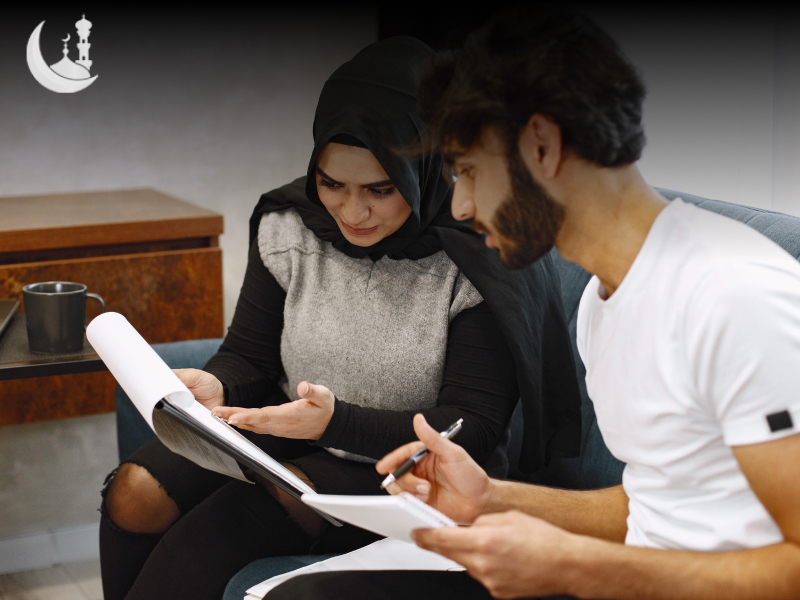According to what Islam teaches, it is part of what it means to be well for the Islamic mind and for Muslims in general. Muslims care about mental health not in terms of feelings or psychological issues but in terms of a larger idea of spirituality, the human body, and the social body. Building mental health within the Islamic culture is highly vital for resilience, group support, and spiritual growth. This blog discusses how Islamic counseling can help with issues of Muslim mental health and how important they are in Islam.
Learning About Mental Health in Islam
Many would associate this term “emotional well-being” with the understanding in Islamic studies that develops a relationship between a maturely emotionally complete soul or spirit and being spiritually contented. Having made those observations, the words and principles of the Quran and Hadith are based on a healthy mentality to prevent mental illness or a type of “psychological well-being.” Some would identify such qualities as tolerance, appreciation, and societal contribution.
Important Things about Mental Health in Islam
- A Faith Tie: For most Muslims, religion is what keeps them going. Prayers, the Quran, and other religious things can make you feel better, and time can help you think. These kinds of spiritual practices help you find answers to your problems and stress, as well as a reason to live and a sense of connection.
- Interdependence: Society and family life is important from the Islamic perspective. The idea of Ummah helps sail Muslims through hard times. If Muslims feel they belong, it is much easier to deal with problems related to mental health or the depressive thoughts and feelings of being separated.
- Seek Help: If the Prophet Muhammad sought help, then it would be all right for Muslim people to seek help for their health.

Even if most teachings of Islam go with mental health, Muslims are not able to manage their mental health problems; most people are afraid of coming out because they get ashamed in such a scenario.
Misinterpreted expectations, past hurt and trauma, religion, and everyday life all aggravate Muslims’ torment. Fears become this sadness, which turns out to be PTSD. A vital power and social transition intensifies the anxiety as it occurs.
Counseling within Islam
This will mean that more people will seek mental health services that are sensitive to other cultures and that fit their faith. Islamic counseling is unique because it integrates the teachings of Islam with psychological principles. This makes it very helpful for Muslims who are experiencing problems with their mental health.

Some advantages of Islamic counseling include
It follows with the factor of:
- Cultural Competence: This is highly aware of what culture and religion they go on to create a barrier when it comes to getting or giving thought into their brain. Knowing the past and faith of clients works well to give good counseling advice.
- Faith and Therapy Integration: This is a type of therapy that combines routine psychological practice with the guidance of spirit in a way that will make the client see the issues from a religious angle. This can apply to holistic health because of this.
Getting beyond the stigma of mental illness in Muslim communities
Probably, the largest thing holding up many Muslim groups from pursuing mental health care is the shame associated with mental illness. Much of this comes from false myths about the nature of mental disease: they make people afraid of, ashamed of, and thus even less likely to get any help for, the person stricken.
Ideas about Eliminating Stigma :
Educating them and creating awareness may end the negativity attached to mental illnesses.
- Leadership: An influential member of a community or religious organization may feel that mental health conditions and seeking help in such conditions are good.
- Safe places to visit: Ensuring a safe environment within the community in which one can discuss problems of having mental disorders will help patients freely discuss their problems with others who have the same.

Some other forms of self-care being taught in Islam include;
Spiritual activities are doing prayers, meditation, or deep thinking. It improves one’s capability to manage mental health disorders
- Salah (Daily Prayer): The daily prayer is like meditation; it removes your thoughts and calms you down. Peace increases when you spend time alone with Allah.
- Dhikr literally means remembering God: If you repeat Dhikr you may become more mindful of your surroundings and composed because some words can keep you straight within your thoughts and make you appear to look more composed.
- Social activities: You are emotionally fit if you are carrying out events with other people while getting support from other people around you. You receive guidance if you are good to other people.
It would be of great importance to the beliefs of people related to Islam for their mental health, of all ways important for good people and societies. So if people are enlightened about the need for importance of mental health and the role of Islamic counseling then only a good setup will come about for the people who are going through hard times.
Conclusion
Muslims believe that people do have responsibilities in regard to mental health. Adopting the Islamic teaching that encourages resilience, communal support, and seeking help will make people enjoy healthier and happier lives through their faith. This teaching respects mental health in a manner that everyone can converse about.
Read Also: How to Pray Salat-al Istikhara: Importance, Benefits, and Timings
Frequently Asked Questions
Q1) What does Islam say about being mentally healthy?
It feels that mental health is very important and doing the right thing is religious and social work. Third, it views mental toughness, strength, and community as important parts of being full.
Q2) What is Islamic guidance?
It is a blend of what we have learned about psychology and what Islam teaches. Although being mindful of the client’s beliefs and culture, the assistance provided is still directed at healing the mental and spiritual bodies.
Q3) Why is a stigma attached to mental illness in one community?
The cultural misconception on the major part instills fear in those circumstances and keeps them far off from seeking help. Even though it has a less significant impact, it still is good to be an open and supportive community






